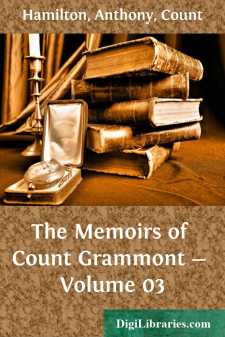Categories
- Antiques & Collectibles 13
- Architecture 36
- Art 48
- Bibles 22
- Biography & Autobiography 816
- Body, Mind & Spirit 145
- Business & Economics 28
- Children's Books 17
- Children's Fiction 14
- Computers 4
- Cooking 94
- Crafts & Hobbies 4
- Drama 346
- Education 58
- Family & Relationships 59
- Fiction 11834
- Foreign Language Study 3
- Games 19
- Gardening 17
- Health & Fitness 34
- History 1378
- House & Home 1
- Humor 147
- Juvenile Fiction 1873
- Juvenile Nonfiction 202
- Language Arts & Disciplines 89
- Law 16
- Literary Collections 686
- Literary Criticism 179
- Mathematics 13
- Medical 41
- Music 40
- Nature 179
- Non-Classifiable 1768
- Performing Arts 7
- Periodicals 1453
- Philosophy 66
- Photography 2
- Poetry 897
- Political Science 203
- Psychology 45
- Reference 154
- Religion 516
- Science 126
- Self-Help 85
- Social Science 82
- Sports & Recreation 34
- Study Aids 3
- Technology & Engineering 59
- Transportation 23
- Travel 463
- True Crime 29
Our website is made possible by displaying online advertisements to our visitors.
Please consider supporting us by disabling your ad blocker.
The Memoirs of Count Grammont - Volume 03
by: Anthony Hamilton
Description:
Excerpt
HIS ARRIVAL AT THE ENGLISH COURT —THE VARIOUS PERSONAGES OF THIS COURT
Curiosity to see a man equally famous for his crimes and his elevation, had once before induced the Chevalier de Grammont to visit England. Reasons of state assume great privileges. Whatever appears advantageous is lawful, and every thing that is necessary is honourable in politics. While the King of England sought the protection of Spain in the Low Countries, and that of the States-General in Holland, other powers sent splendid embassies to Cromwell.
This man, whose ambition had opened him a way to sovereign power by the greatest crimes, maintained himself in it by accomplishments which seemed to render him worthy of it by their lustre. The nation, of all Europe the least submissive, patiently bore a yoke which did not even leave her the shadow of that liberty of which she is so jealous; and Cromwell, master of the Commonwealth, under the title of Protector, feared at home, but yet more dreaded abroad, was at his highest pitch of glory when he was seen by the Chevalier de Grammont; but the Chevalier did not see any appearance of a court. One part of the nobility proscribed, the other removed from employments; an affectation of purity of manners, instead of the luxury which the pomp of courts displays all taken together, presented nothing but sad and serious objects in the finest city in the world; and therefore the Chevalier acquired nothing by this voyage but the idea of some merit in a profligate man, and the admiration of some concealed beauties he had found means to discover.
Affairs wore quite a different appearance at his second voyage. The joy for the restoration of the royal family still appeared in all parts. The nation, fond of change and novelty, tasted the pleasure of a natural government, and seemed to breathe again after a long oppression. In short, the same people who, by a solemn abjuration, had excluded even the posterity of their lawful sovereign, exhausted themselves in festivals and rejoicings for his return.
The Chevalier de Grammont arrived about two years after the restoration. The reception he met with in this court soon made him forget the other; and the engagements he in the end contracted in England lessened the regret he had in leaving France.
This was a desirable retreat for an exile of his disposition.
Everything flattered his taste, and if the adventures he had in this country were not the most considerable, they were at least the most agreeable of his life. But before we relate them it will not be improper to give some account of the English court, as it was at that period.
The necessity of affairs had exposed Charles II. from his earliest youth to the toils and perils of a bloody war. The fate of the king his father had left him for inheritance nothing but his misfortunes and disgraces. They overtook him everywhere; but it was not until he had struggled with his ill-fortune to the last extremity that he submitted to the decrees of Providence.
All those who were either great on account of their birth or their loyalty had followed him into exile; and all the young persons of the greatest distinction having afterwards joined him, composed a court worthy of a better fate....









